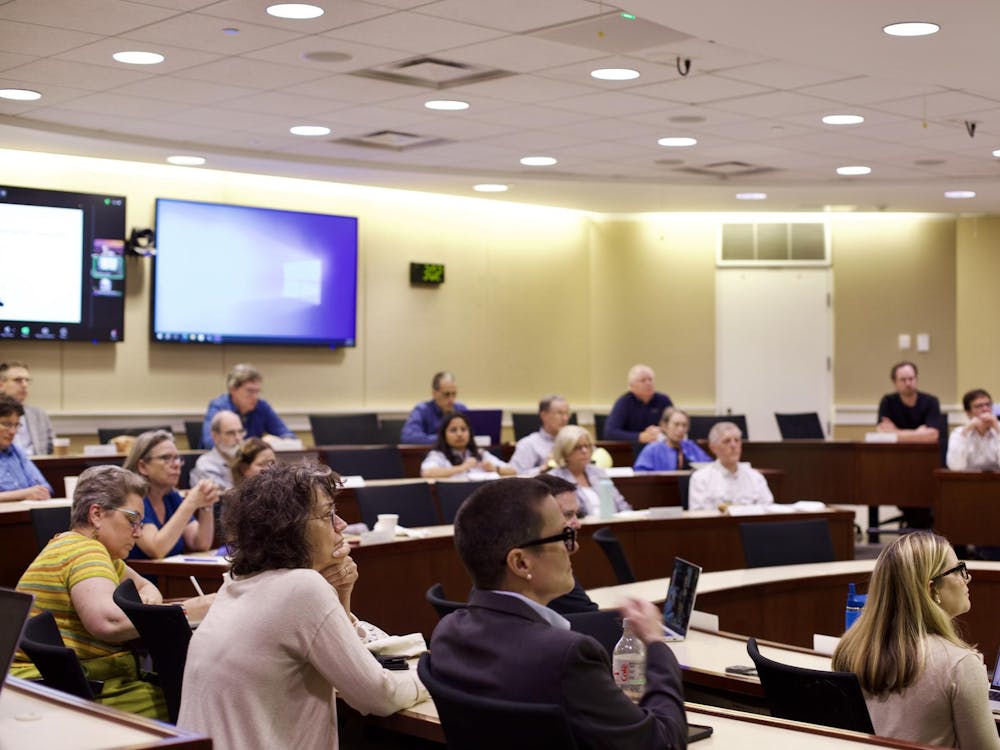Student leaders sent a report listing 23 policy suggestions and proposals to the Board of Visitors before its special meeting on sexual assault Friday.
“Students sit at the center of the sexual assault storm," the document's opening paragraph reads. "It is a problem among us, and a problem we must fix at personal and cultural levels. In the last weeks, we have come together with that in mind to prepare the following — a student’s point of view on how the many dedicated stakeholders can come together."
The report, drafted by a council of student leaders from a variety of different organizations on Grounds, outlines nine steps for the Board and seven steps for the administration to combat various issues of gender-based violence and sexual assault on Grounds.
Among these suggestions are mandated Women and Gender studies classes, funding for legal counsel for survivors of sexual assault, trauma training for police, and school-sponsored alternatives to Block Party — “one of the most dangerous nights of the year,” according to the report.
Mandated WGS classes is among the more involved proposed changes, as it requires additional funding and changing curriculum. Third-year College student Sara Surface, external chair of the Sexual Violence Prevention Coalition, said in an email that tackling the issue of sexual assault requires challenging "the status quo."
"We view WGS classes as integral to a well-rounded education and as a vital contribution to the discussion around social change," she said. "We hope this suggestion brings light to the need for greater funding and more professors with tenure in the WGS department.
Student Council President Jalen Ross, a fourth-year Engineering student, said the WGS requirement could take a number of forms, from academic courses to seminars to training.
The council which drafted the document — thus far unnamed but formed in the wake of the Rolling Stone article released last month — includes chairs and presidents of Student Council, One in Four, One Less, the Sexual Violence Prevention Coalition, the Class of 2018, ADAPT, and the Inter-Fraternity Council, as well as a member of a National Pan-Hellenic fraternity and the student member of the Board of Visitors.
Student leaders from the Women’s Center, Peer Health Educators, Feminism is For Everyone, and the alliance for Social Change were consulted on the recommendations as well — though these students did not participate in the actual writing of the document.
“Membership is still very much in flux; and we're in the process of figuring out how we balance the needs of keeping the group small enough to be productive while still getting a broad, representative, and diverse set of perspectives,” Student Council President Jalen Ross, a fourth-year Engineering student, said in an email. “We'll likely, for instance, ask a few administrators to come to some meetings in an advisory role. How long this group will need to exist — and if beyond this coming semester, succession plans — is also a pending question.”
Ross said the Class of 2018 was included specifically because sexual assault and gender violence are particularly prominent among first-year students as a demographic.
None of the requests come with a specific financial request or expected obligation on behalf of the University, but Ross said funding these requires would come from the University itself, in combination with student groups and outside sources. The University already set aside funding for Buddies on Call and Student Watch, two student groups which provide students with partners to help them get home safely from social activities.
Surface and Ross both said no amount of training can stop predators from attempting to engage in criminal behavior, but bystander training and intervention on an administrative level will help foster a safer environment.
“Some people are evil; others make horrific mistakes," Ross said. "And that's exactly why the sorts of trainings and resources that we're championing are aimed at empowering everyone else to stop assaults before they happen. We may not be able to turn predators into upstanding citizens, but we can turn upstanding citizens into active bystanders, and active bystanders into advocates.”
Surface said this kind of change must come from a cultural emphasis on bystander intervention.
“By the time people come to college, they have already been heavily influenced by the culture at their high school and in society at large," she said. "It's a big deal to ask people to work to break down those cultural barriers — 'it's not my business,' 'somebody else will step up’ — but ultimately empowering people to intervene when they see a shady situation is how we stop the people who will be predators no matter how much training they get."
The proposal will be discussed by the Board’s Ad Hoc Group on University Climate and Culture at its meeting Monday.
“At the end of the day, this proposal is about ensuring that every generation of U.Va. students has the same opportunity to think critically about all this that we current students have had by virtue of this semester's firestorm,” Ross said.






